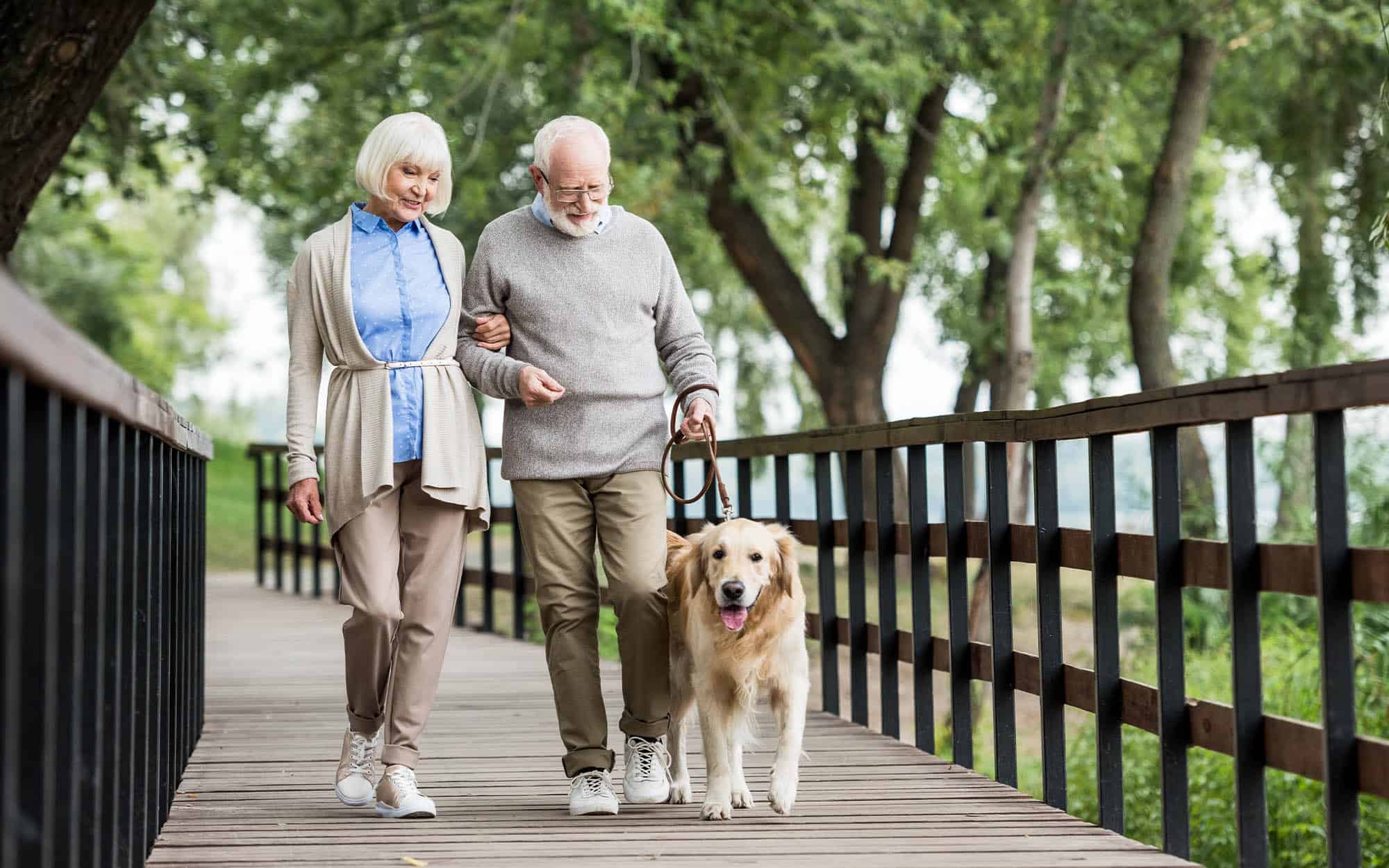Falls are a major concern for our senior family members, but we can work together to reduce the risk. In honor of National Fall Prevention Week, which starts September 18 to 22, let’s explore some elderly fall prevention best practices to help raise awareness.
What Causes Falls in Older Adults?
Certain factors can increase the risk of falls among seniors. Here are some common ones that can lead to falls in older adults:
- Balance and gait: Inactivity can lead to a loss of coordination, flexibility, and balance, making falls more likely.
- Vision: As we age, our eyes become less effective at detecting contrasts and tripping hazards.
- Medications: Some prescriptions and over-the-counter drugs can cause dizziness and dehydration, increasing the risk of falling.
- Environment: Most seniors have lived in their homes for a long period of time and don’t consider that they may need simple modifications to reduce falling risks.
- Chronic conditions: Having a chronic condition like diabetes or arthritis can contribute to falls due to lost function, inactivity, pain, and multiple medications.
Fall Prevention Tips for Seniors
You can prioritize your loved ones’ safety and well-being by being aware of the above fall risk factors and taking the following steps to prevent falls.
Find a Good Balance and Exercise Program
Balance, strength, and flexibility are key to preventing falls in our aging loved ones. By participating in an exercise program that builds on these skills, your seniors can improve their balance, making every step a confident and secure one. In addition, increased strength will allow them to easily handle daily tasks, feeling independent and empowered. Some ideas include heel lifts, toe lifts, sit to stand, wall push-ups, and leg lifts. You can also reach out to your local Area Agency on Aging for expert referrals and find programs tailored to your elderly loved one’s needs. Whether it’s yoga, dancing, or even tai chi, there’s something for everyone to enjoy.
Keep Your Home Safe
There are some simple, affordable home modifications that can help reduce falling risks for seniors. One key recommendation is to increase lighting throughout the house, especially at the top and bottom of stairs. Another essential step is to make sure there are two secure handrails on all stairs, providing that extra support and stability for our loved ones. Installing grab bars in the tub/shower and near the toilet can also make a big difference in safety. For added peace of mind, consider a chair and a hand-held shower for your loved one, or even installing a walk-in bathtub. These small adjustments can make a huge difference in preventing falls and maintaining independence for seniors.
Regularly Review Medications With Your Loved One’s Doctor
It’s important to ensure that your elderly family members, who may already have a higher risk of falling, are taking their medications safely and effectively. By regularly reviewing medications with their physician, you can help identify any potential side effects that might increase their risk. They can guide you through any necessary adjustments, making sure they are taking medications only as prescribed and minimizing any potential risks.
Pay Attention to Their Behavior
Be on the lookout for signs in your elderly loved ones. If you notice them using walls or furniture for support, having difficulty walking or getting up from a chair, it may be time to consider a visit to a physical therapist. Physical therapy can do wonders for improving balance, strength, and gait in older adults through targeted exercises. They can also provide advice on using canes or walkers, if necessary. Just remember to follow their guidance, as improperly fitted aids can actually increase the risk of falling.
Ask for a Fall Risk Assessment
By requesting a fall risk assessment from your loved ones’ doctor, you can identify potential hazards and take preventive measures to ensure well-being and independence. This assessment considers factors like balance, muscle strength, and current health conditions, providing valuable insights for personalized care plans. From recommending physical exercises to enhancing home safety, their doctor’s expertise gives you the power to create a safer environment and prevent avoidable falls.
Get a Vision and Hearing Test
Vision and hearing tests can be a game-changer in minimizing the risk of falls for your elderly loved ones. By taking your loved one to get a vision and hearing test, you are taking a proactive step towards their safety and well-being. Vision tests can detect common eye conditions such as cataracts, glaucoma, and macular degeneration. Identifying these issues early on can prevent accidents caused by poor depth perception or blurry vision. Meanwhile, a hearing test can identify any hearing loss, which can affect an individual’s ability to hear their surroundings, leading to potential falls.
Talk to Your Family Members
Reach out to your family members and friends. Share this article and raise awareness about the importance of fall prevention. Let’s make sure everyone knows how they can contribute.
At Fairmont Senior Living on Clayton, we offer various therapy services and health assessments for our residents that support a better quality of life.
Key Takeaways
Falls are a leading cause of injury among the elderly, but with a little teamwork, we can make a big difference in reducing this risk. Spread the word about fall prevention, and share this article with your loved ones to raise awareness.
If you think it may be time to consider transitioning your loved one to an assisted living community, Fairmont Senior Living offers a range of services designed to improve the quality of life for our residents. Our caring staff provides case management assistance, medication management, and supervision to ensure your loved one’s well-being. In addition, we offer therapy services, including physical, occupational, and speech therapy that help our residents maintain their independence and improve their overall well-being. Contact us today to learn more about how we can help your loved one transition to an engaging, secure community.

